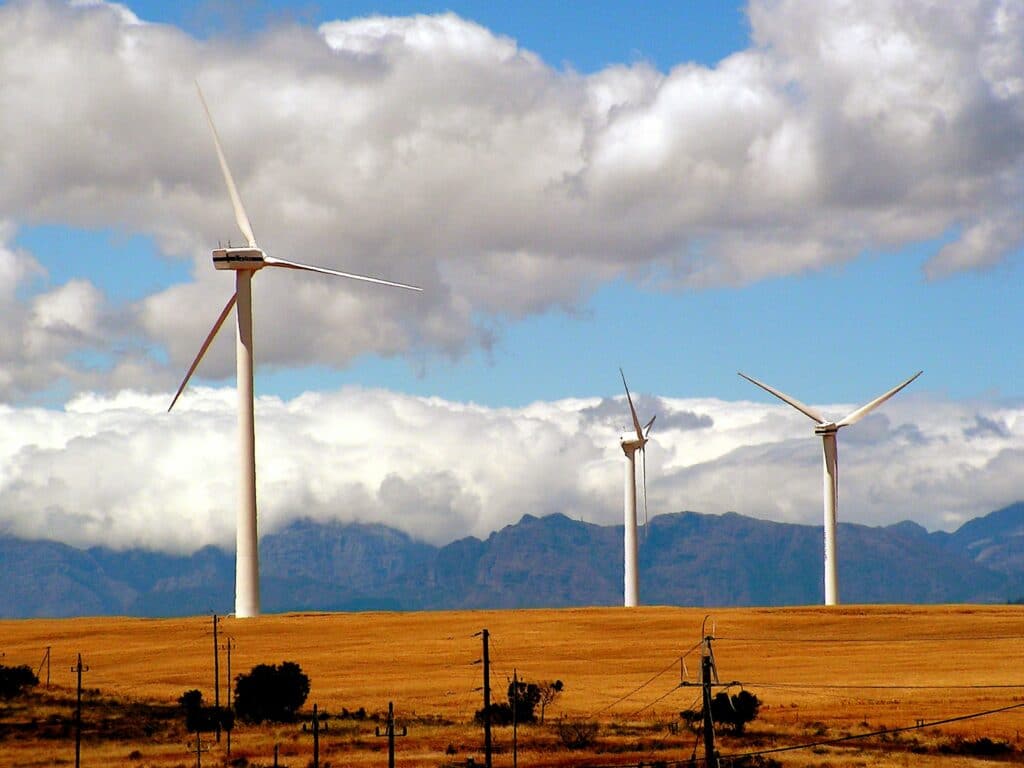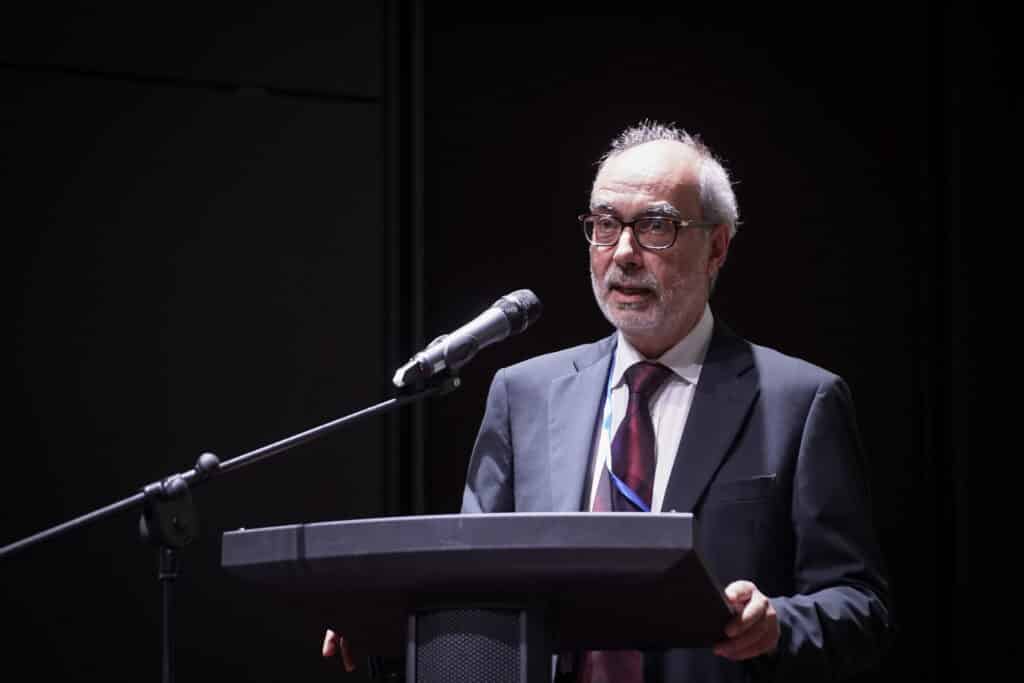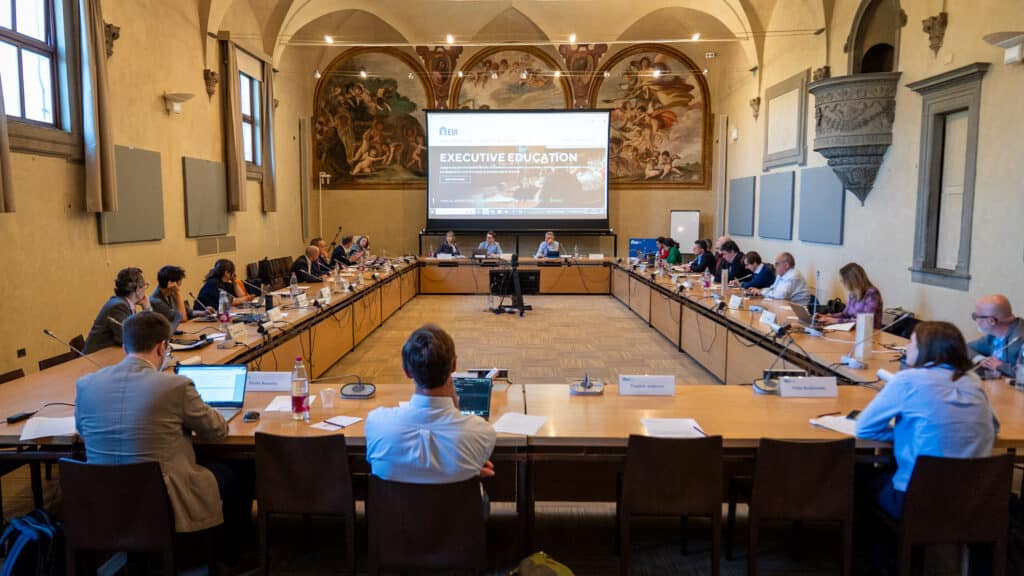The African School of Regulation (ASR) initiative has been launched by a partnership of leading institutions in energy and climate change
FSR, EUI partner up with leading institutions in the energy and climate sectors to support the energy transition in Africa
In February 2022, the initiative to create the African School of Regulation (ASR) was launched via a scientific knowledge partnership agreement among the European University Institute (EUI), the University of Cape Town (UCT), the Pan African University Institute of Water and Energy Sciences (PAUWES), the Enel Foundation, RMI, and the Energy Nexus Network (TENN). Three new partners have joined the initiative at a later stage: The Rockefeller Foundation, The Economic Commission for Africa (ECA) of the UN, and The Global Energy Alliance for People and Planet (GEAPP)
The launch brought together renowned institutions working in both the energy and climate change sectors with the aim to offer knowledge and capacity-building initiatives, as well as applied research and space for policy dialogue, for governments, regulators, utilities, and other stakeholders to better regulate the African energy sector in support of the continent’s socio-economic development and environmental sustainability.
“The launch of the African School of Regulation is a testament to our collective efforts to support Africa’s drive to achieving SDG7 with particular emphasis on universal access to modern energy services for all,” said Kandeh Yumkella, founder and CEO of TENN. “However, the massive investments required will only be possible when the right regulatory and policy frameworks are in place. TENN is proud to be one of the collaborating institutions to create the ASR,” he further underscored.
At its core, the ASR aims to be the preeminent pan-African centre of excellence on energy regulation and in providing capacity building on best international regulatory practices. Its establishment is inspired by the EUI Florence School of Regulation’s (FSR) mission.
“The FSR is keen to share its knowledge and expertise in the creation of the ASR as a specialised school on energy regulation and providing logistical and coordination support during the creation and start-up phase,” said Professor Ignacio Pérez-Arriaga, who represents the FSR in the ASR Partnership.
Recognized for its diverse experience and success in providing training in energy regulation with a focus on the European Union but also around the world for almost two decades, the FSR has recently made a special effort to provide the right training and support to meet Africa’s reality and needs in the areas of energy and climate change.
Carlo Papa, Managing Director of the Enel Foundation, noted that “as part of our efforts to support the energy transition in Africa, we are delighted to participate in the launch of the ASR venture and keen to cooperate with partners for the School to become a cornerstone of the continent’s sustainable future powered by affordable, reliable, clean and modern electricity smartly distributed to all.”
The establishment of the African School of Regulation will be executed in two phases. Led by the Florence School of Regulation and in coordination with partner institutions, phase one will see the development of training programs, the implementation of specific activities in research and policy dialogue. During this first phase, the partners will identify an African hosting institution(s) and will establish modalities for the future governance of the ASR, including the program of activities and a viable financing plan for a period of 5 years.
“The Power Futures Lab at the University of Cape Town is pleased to be associated with this initiative to establish an African School of Regulation. This will be an opportunity to build on our existing training courses on the power sector reform and regulation, by widening the range and reach of activities in support of the energy transition, and the provision of sustainable, reliable and affordable energy services” noted UCT Professor, Anton Eberhard.
Not only will the launch of the virtual Knowledge Hub compliment the new initiative’s ongoing efforts, but it will also provide an inventory of all relevant and ongoing capacity-building activities, energy regulation institutions in Africa, and a repository of open-access learning materials which will be made available to participants.
“RMI’s Energy Transition Academy is honoured to be partnering with ASR to enhance on-the-ground capacity and to empower the leaders of the Global South,” said Jules Kortenhorst, CEO of RMI. “This collaboration reflects a holistic, participant-led, and market-driven approach that is key to accelerating a just energy transition.”
Phase two of the ASR will see the transfer of the management and operations of the School to the identified institution(s) under new governance. This means that the ASR will formally be headquartered at the hosting institution(s) in Africa.
Professor Abdellatif Zerga, director of PAUWES, added: “ASR will contribute extensively to energy transition as addressed in the Agenda 2063 of the African Union. PAUWES will contribute to building and strengthening capacities, support the African Union’s organs and members states in the uptake, localization, and adaptation of ASR outputs towards the provision of reliable, affordable, and sustainable energy for everyone in the African continent.”
The creation of the ASR is endorsed and supported in different ways by many organizations including – in alphabetic order – the Africa EU Energy Partnership (AEEP), the African Development Bank (AfDB), the Africa Europe Foundation (AEF), the African Minigrids Developers Association (AMDA), the World Bank’s Energy Sector Management Assistance Programs (ESMAP), the French Development Agency (AFD), Friends of Europe, the Global association for the off-grid solar energy industry GOGLA, Power for All, RES4Africa, and Sustainable Energy for All (SE4All). They will offer support in the start-up, and consolidation phases of the ASR according to raising needs.
Vera Songwe, the United Nations Under-Secretary-General and the Executive Secretary of UNECA (Africa’s leading institution focused on generating knowledge and applying policy research in support of accelerated economic diversification and structural transformation) commented on the launching of the ASR initiative:
During this Decade of Action for the SDGs, African countries have to dramatically step-up investments in clean energy for access and climate action, requiring about US$ 60 billion or more per year. With the increasing fiscal impacts of the COVID-19, pandemic innovative solutions, such as our SDG7 Initiative and the Liquidity and Sustainability Facility (LSF), are needed to support countries to leverage investments from the private sector. This requires urgency to fix regulatory barriers to ensure market openness, attractiveness, and readiness for private-sector finance. The African School of Regulation is, therefore, a timely and very welcome initiative to support Africa with the needed capacity for this, and the ECA is proud to be a part of it.
About the Partner Institutions
The European University Institute (EUI) is an international organization that operates in higher education and research in the fields of social sciences and humanities, whilst promoting dialogue and knowledge transfer for educational and scientific purposes with communities both near and far, in order to respond to global perspectives and challenges. The EUI hosts the Florence School of Regulation (FSR), which will oversee the implementation of the agreement for the establishment of the ASR. The FSR was established in 2004 as the initiative of national energy regulators. With its renowned faculty of over three hundred energy experts worldwide, the FSR currently has a portfolio of about thirty modular courses and organizes tailor-made courses to meet the specific needs of public institutions and private organizations.
The University of Cape Town’s (UCT’s) Graduate School of Business, Power Futures Lab has been running annual courses since 2001 on power sector reform and regulation in Africa, with each course typically attracting around 70 participants (regulators, policymakers, utilities, end-users, development finance institutions, private sector) from more than 20 African countries. Local faculty and practitioners are supported by leading international faculty.
The Pan African University Institute of Water and Energy Sciences (incl. Climate Change) (PAUWES) is the culmination of continental initiatives of the Commission of the African Union (Assembly of Heads of AU state members 14 December 2010) to revitalise higher education and research in Africa, under the Second Decade of Education for Africa and the consolidated Plan of Action of Science and Technology for Africa. PAUWES aims at building a world-class human capital in Africa for tackling the burning issues limiting the fast development of the energy sector, from policy to engineering.
The Fondazione Centro Studi Enel (“Enel Foundation”) is a non-profit organization, founded by Enel S.p.A., with the aim to explore and analyze current trends in the energy sectors at large at the crossroads of climate change and energy transition, providing a scientific and rigorous interpretation of these dynamics.
RMI is an independent non-profit founded in 1982 that transforms global energy systems through market-driven solutions to align with a 1.5°C future and secure a clean, prosperous, zero-carbon future for all. RMI’s Energy Transition Academy (ETA) aims to empower energy professionals to be leaders of clean energy economies in the Global South and have a meaningful role in international climate action. The ETA provides a global platform for energy practitioners to access curated information, tools, peer-to-peer problem-solving, and coaching networks. The ETA is focused on developing countries and emerging markets where RMI has on-the-ground operations including sub-Saharan Africa, Southeast Asia, and island nations.
The Energy Nexus Network (TENN) is a regional knowledge hub for sustainable energy solutions, an implementation mechanism to improve development outcomes on SDG7 using sustainable energy as a critical catalyst. TENN works with local and international partners to strengthen the energy ecosystem to accelerate the scaling and replication of energy access and clean cooking solutions. In addition, TENN provides advisory support and facilitates high-level multi-stakeholder engagement and dialogue on sustainable energy solutions and crucial energy-enabling Sustainable Development Goals (SDGs) for improved wellbeing.
The Rockefeller Foundation (RF) improves lives and the planet and unleash human potential through innovation. RF is dedicated to the principle that all men and women dignified and resilient as they are – have the right to health, food, power and economic mobility. Visit website.
The Economic Commission for Africa (ECA) was created by the Economic and Social Council (ECOSOC) of the United Nations (UN) in 1958 as one of the UN’s five regional commissions, ECA’s mandate is to promote the economic and social development of its member States, foster intraregional integration, and promote international cooperation for Africa’s development. Visit website.
The Global Energy Alliance for People and Planet (GEAPP) is working in partnership with countries across Africa, Asia, Latin America, and the Caribbean to operationalise renewable energy transitions and expansions, which will reduce greenhouse gases, extend clean power to underserved people, and enable green jobs. Visit website.








